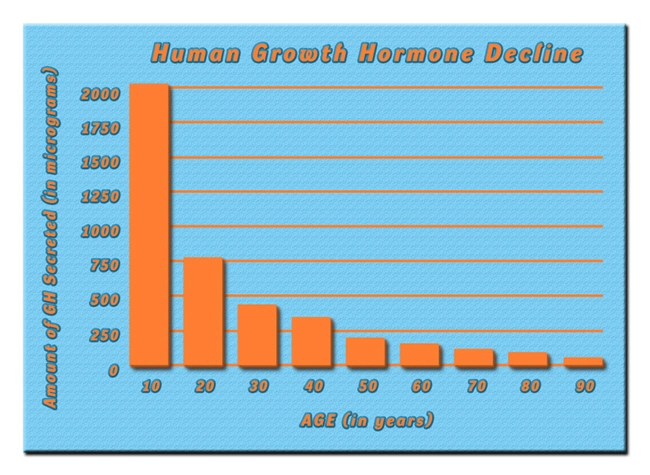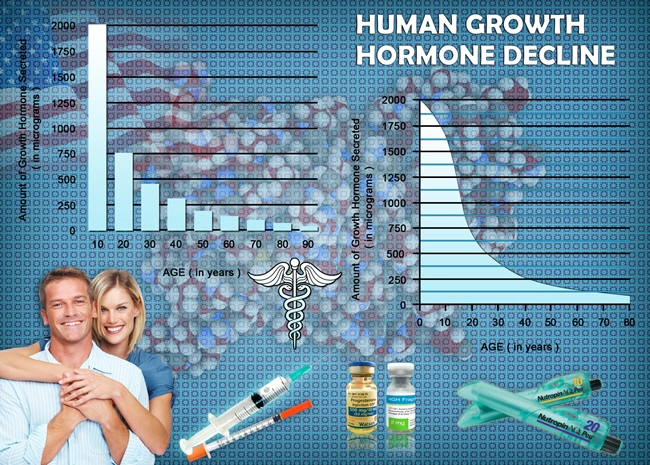
Introduction to Impotence and Chronic Illness
Impotence, clinically known as erectile dysfunction (ED), is a prevalent issue among American males, particularly those grappling with chronic illnesses. Chronic conditions such as diabetes, heart disease, and neurological disorders can significantly impair sexual function, leading to a distressing impact on quality of life. This article aims to shed light on the intersection of chronic illness and impotence, offering insights and guidance for affected individuals.
Understanding the Link Between Chronic Illness and Impotence
Chronic illnesses often disrupt the body's normal functioning, which can extend to sexual health. For instance, diabetes can damage nerves and blood vessels, crucial for achieving and maintaining an erection. Similarly, cardiovascular diseases can impede blood flow to the penis, while neurological disorders might affect nerve signals necessary for sexual arousal. Recognizing these connections is the first step towards managing impotence effectively.
The Psychological Impact of Impotence in Chronic Illness
Beyond the physical aspects, impotence can take a significant toll on mental health. Feelings of inadequacy, frustration, and depression are common among men who experience ED due to chronic illness. These psychological effects can create a vicious cycle, where mental health issues exacerbate physical symptoms, further complicating treatment and recovery.
Strategies for Managing Impotence in the Context of Chronic Illness
Managing impotence when dealing with a chronic condition requires a multifaceted approach. Here are several strategies that can be beneficial:
- **Medical Interventions:** Consulting with healthcare providers is crucial. Medications such as phosphodiesterase type 5 inhibitors (e.g., Viagra, Levitra) can be effective for many men. In some cases, hormone therapy or the use of vacuum erection devices may be recommended.
- **Lifestyle Modifications:** Adopting a healthier lifestyle can improve overall health and sexual function. This includes regular exercise, a balanced diet, smoking cessation, and limiting alcohol intake. Such changes can help manage the underlying chronic condition and, in turn, alleviate impotence.
- **Psychological Support:** Addressing the mental health aspect of impotence is equally important. Therapy, either individual or couples counseling, can provide support and strategies to cope with the emotional impact of ED. Support groups can also offer a sense of community and understanding.
- **Communication with Partners:** Open dialogue with partners about impotence can alleviate stress and foster a supportive environment. Educating partners about the condition and its relation to chronic illness can enhance mutual understanding and intimacy.
The Role of Healthcare Providers in Managing Impotence
Healthcare providers play a pivotal role in the management of impotence in men with chronic illnesses. Regular check-ups and open discussions about sexual health are essential. Providers should be proactive in screening for ED, offering treatment options, and referring patients to specialists such as urologists or endocrinologists when necessary.
Conclusion: Embracing a Holistic Approach to Impotence and Chronic Illness
Impotence in the context of chronic illness presents unique challenges, but with the right approach, it is manageable. American males facing this issue should seek comprehensive care that addresses both the physical and psychological aspects of ED. By embracing a holistic approach, including medical treatment, lifestyle changes, and psychological support, men can improve their sexual health and overall well-being despite the hurdles posed by chronic illness.
Contact Us Today For A Free Consultation
Dear Patient,
Once you have completing the above contact form, for security purposes and confirmation, please confirm your information by calling us.
Please call now: 1-800-380-5339.
Welcoming You To Our Clinic, Professor Tom Henderson.

- Revolutionizing Intimacy: Advanced Therapies for Erectile Dysfunction in American Men [Last Updated On: February 19th, 2025] [Originally Added On: February 19th, 2025]
- Unveiling the Spectrum of Alternative Therapies for Managing Impotence in American Males [Last Updated On: February 19th, 2025] [Originally Added On: February 19th, 2025]
- Demystifying the Shadows: A Comprehensive Examination of Erectile Dysfunction [Last Updated On: February 25th, 2025] [Originally Added On: February 25th, 2025]
- Fractured Masculinity: Overcoming Impotence and Embracing Emotional Freedom [Last Updated On: February 26th, 2025] [Originally Added On: February 26th, 2025]
- Behind the Silence: Revealing the Covert Battle Against Male Impotence [Last Updated On: February 27th, 2025] [Originally Added On: February 27th, 2025]
- Decoding the Mysteries of Erectile Dysfunction: A Scientific Approach [Last Updated On: February 28th, 2025] [Originally Added On: February 28th, 2025]
- Revamping Masculinity: Thriving in Life Despite Male Impotence [Last Updated On: February 28th, 2025] [Originally Added On: February 28th, 2025]
- Decoding the Enigma: Unraveling Fallacies and Unveiling Realities about Erectile Dysfunction [Last Updated On: March 1st, 2025] [Originally Added On: March 1st, 2025]
- Persistence of Potency: Unraveling the Psychological Aftermath of Impotence [Last Updated On: March 2nd, 2025] [Originally Added On: March 2nd, 2025]
- Exploring the Psychological and Societal Impact of Erectile Dysfunction: Addressing Stigma, Treatment Options, and Lifestyle Changes [Last Updated On: March 3rd, 2025] [Originally Added On: March 3rd, 2025]
- Erectile Dysfunction: Early Indicator of Cardiovascular Disease in Men [Last Updated On: March 4th, 2025] [Originally Added On: March 4th, 2025]
- Exploring Testosterone's Impact on Male Sexual Health and Impotence Management [Last Updated On: March 5th, 2025] [Originally Added On: March 5th, 2025]
- Exploring the Link Between Stress and Erectile Dysfunction in American Men [Last Updated On: March 6th, 2025] [Originally Added On: March 6th, 2025]
- Navigating Impotence in Relationships: Communication Strategies and Maintaining Intimacy Together [Last Updated On: March 7th, 2025] [Originally Added On: March 7th, 2025]
- Understanding and Overcoming Male Impotence: A Path to Recovery and Success Stories [Last Updated On: March 8th, 2025] [Originally Added On: March 8th, 2025]
- The Emotional and Relational Impact of Impotence: Navigating Challenges for Stronger Relationships [Last Updated On: March 9th, 2025] [Originally Added On: March 9th, 2025]
- Innovative Treatments Revolutionizing Impotence Care in American Males [Last Updated On: March 11th, 2025] [Originally Added On: March 11th, 2025]
- Understanding and Overcoming Impotence: A Comprehensive Guide for American Males [Last Updated On: March 12th, 2025] [Originally Added On: March 12th, 2025]
- Revolutionizing Male Health: A Comprehensive Guide to Overcoming Impotence Through Lifestyle Changes [Last Updated On: March 13th, 2025] [Originally Added On: March 13th, 2025]
- Understanding the Therapeutic Pathway: Emotional Recovery from Impotence in American Males [Last Updated On: March 15th, 2025] [Originally Added On: March 15th, 2025]
- Impotence: Understanding, Managing, and Rebuilding Intimacy in American Men [Last Updated On: March 16th, 2025] [Originally Added On: March 16th, 2025]
- Diabetes and Impotence in American Males: Causes, Impacts, and Management Strategies [Last Updated On: March 18th, 2025] [Originally Added On: March 18th, 2025]
- American Men's Triumph Over Impotence: Breaking Silence and Stigma [Last Updated On: March 18th, 2025] [Originally Added On: March 18th, 2025]
- Overcoming Impotence: Breaking Stigma, Seeking Help, and Empowering Men [Last Updated On: March 19th, 2025] [Originally Added On: March 19th, 2025]
- Restorative Sleep: Key to Enhancing Sexual Health and Managing Impotence in American Males [Last Updated On: March 19th, 2025] [Originally Added On: March 19th, 2025]
- Understanding and Overcoming Impotence: Causes, Treatments, and Empowerment Strategies [Last Updated On: March 20th, 2025] [Originally Added On: March 20th, 2025]
- Telemedicine Revolutionizes Impotence Care for American Men: Benefits and Future Prospects [Last Updated On: March 20th, 2025] [Originally Added On: March 20th, 2025]
- Impotence in Aging Men: Biological, Psychological, and Treatment Insights [Last Updated On: March 20th, 2025] [Originally Added On: March 20th, 2025]
- Mental Resilience: Key to Overcoming Impotence in American Men [Last Updated On: March 21st, 2025] [Originally Added On: March 21st, 2025]
- Economic and Emotional Toll of Impotence on American Men: A Holistic View [Last Updated On: March 21st, 2025] [Originally Added On: March 21st, 2025]
- Impotence in American Males: Causes, Treatments, and Triumphs [Last Updated On: March 21st, 2025] [Originally Added On: March 21st, 2025]
- Exploring Aphrodisiacs for Impotence: Scientific Insights and Holistic Approaches [Last Updated On: March 21st, 2025] [Originally Added On: March 21st, 2025]
- Impotence in American Men: Causes, Treatments, and Restoring Intimacy [Last Updated On: March 22nd, 2025] [Originally Added On: March 22nd, 2025]
- Medication-Induced Impotence: Causes, Effects, and Management Strategies for American Males [Last Updated On: March 23rd, 2025] [Originally Added On: March 23rd, 2025]
- Global Perspectives on Impotence: Cultural Views and Treatments for American Men [Last Updated On: March 23rd, 2025] [Originally Added On: March 23rd, 2025]
- Work Stress and Impotence: Understanding Links and Managing Effects in American Men [Last Updated On: March 23rd, 2025] [Originally Added On: March 23rd, 2025]
- Redefining Sexual Success: Understanding and Overcoming Impotence in American Males [Last Updated On: March 23rd, 2025] [Originally Added On: March 23rd, 2025]
- Essential Vitamins and Minerals to Combat Impotence in American Men [Last Updated On: March 23rd, 2025] [Originally Added On: March 23rd, 2025]
- Obesity, Diet, and Impotence: A Guide for American Males' Sexual Health [Last Updated On: March 24th, 2025] [Originally Added On: March 24th, 2025]
- Debunking Impotence Myths: Empowering American Men with Facts and Treatment Options [Last Updated On: March 24th, 2025] [Originally Added On: March 24th, 2025]
- Understanding and Managing Erectile Dysfunction: Breaking the Silence and Stigma [Last Updated On: March 24th, 2025] [Originally Added On: March 24th, 2025]
- Exploring Secondary Causes of Impotence in American Men Beyond Medication [Last Updated On: March 24th, 2025] [Originally Added On: March 24th, 2025]
- Smoking, Alcohol, and Impotence: Risks and Mitigation Strategies for American Men [Last Updated On: March 24th, 2025] [Originally Added On: March 24th, 2025]
- PDE5 Inhibitors: Revolutionizing Erectile Dysfunction Treatment in American Men [Last Updated On: March 24th, 2025] [Originally Added On: March 24th, 2025]
- Innovative Approaches Revolutionizing Impotence Treatment and Diagnosis [Last Updated On: March 24th, 2025] [Originally Added On: March 24th, 2025]
- Innovative Gadgets and Therapies Revolutionize ED Treatment and Management [Last Updated On: March 24th, 2025] [Originally Added On: March 24th, 2025]
- Overcoming Impotence: Strategies for Enhancing Seduction and Intimacy [Last Updated On: March 24th, 2025] [Originally Added On: March 24th, 2025]
- Lifestyle Choices Impacting Male Sexual Health: Diet, Exercise, and More [Last Updated On: March 24th, 2025] [Originally Added On: March 24th, 2025]
- Chronic Stress and Impotence: Understanding Links and Managing Effects [Last Updated On: March 24th, 2025] [Originally Added On: March 24th, 2025]
- Acupuncture as a Complementary Therapy for Impotence in American Males [Last Updated On: March 25th, 2025] [Originally Added On: March 25th, 2025]
- Overcoming Impotence: Partners' Role in Recovery and Intimacy [Last Updated On: March 25th, 2025] [Originally Added On: March 25th, 2025]
- Impotence and Self-Esteem: Counseling Strategies for Recovery and Resilience [Last Updated On: March 26th, 2025] [Originally Added On: March 26th, 2025]
- Impotence in American Men: Causes, Treatments, and Holistic Recovery Strategies [Last Updated On: March 26th, 2025] [Originally Added On: March 26th, 2025]
- Understanding Impotence: Anatomy, Blood Flow, and Holistic Treatment Approaches [Last Updated On: March 26th, 2025] [Originally Added On: March 26th, 2025]
- Physical Therapy: A Comprehensive Approach to Treating Impotence in American Males [Last Updated On: March 26th, 2025] [Originally Added On: March 26th, 2025]
- Endocrine Disorders and Impotence: Hormonal Imbalances and Treatment Strategies [Last Updated On: March 26th, 2025] [Originally Added On: March 26th, 2025]
- Psychological Approaches to Managing and Overcoming Impotence in American Males [Last Updated On: March 26th, 2025] [Originally Added On: March 26th, 2025]
- Exercise as a Potent Remedy for Impotence in American Males [Last Updated On: March 26th, 2025] [Originally Added On: March 26th, 2025]
- Overcoming Impotence: Understanding Causes and Embracing Sexual Wellness in Modern Men [Last Updated On: March 27th, 2025] [Originally Added On: March 27th, 2025]
- Navigating Insurance Coverage for Effective Erectile Dysfunction Treatment in the US [Last Updated On: March 27th, 2025] [Originally Added On: March 27th, 2025]
- Impotence in American Men: Psychological Impacts and Coping Strategies [Last Updated On: March 27th, 2025] [Originally Added On: March 27th, 2025]
- Evolving Treatments for Impotence: From Ancient Remedies to Future Innovations for American Men [Last Updated On: March 28th, 2025] [Originally Added On: March 28th, 2025]
- Impotence: Unveiling Emotional, Financial Burdens and Seeking Supportive Solutions [Last Updated On: March 28th, 2025] [Originally Added On: March 28th, 2025]
- Innovative Devices and Technologies Revolutionizing Impotence Treatment [Last Updated On: March 28th, 2025] [Originally Added On: March 28th, 2025]
- Exploring Injection and Device Therapies for Effective ED Treatment in American Men [Last Updated On: March 28th, 2025] [Originally Added On: March 28th, 2025]
- Emotional Challenges of Impotence: Coping Strategies for American Men [Last Updated On: March 28th, 2025] [Originally Added On: March 28th, 2025]
- Impotence in American Men: Redefining Masculinity and Seeking Support [Last Updated On: March 29th, 2025] [Originally Added On: March 29th, 2025]
- Impotence and Mental Health: Understanding Links and Holistic Management Strategies [Last Updated On: March 29th, 2025] [Originally Added On: March 29th, 2025]
- Overcoming Impotence: American Men's Journeys to Recovery and Confidence [Last Updated On: March 30th, 2025] [Originally Added On: March 30th, 2025]
- Mindfulness and Meditation: Complementary Approaches to Managing Impotence in American Men [Last Updated On: March 30th, 2025] [Originally Added On: March 30th, 2025]
- Understanding Impotence: Biochemical, Hormonal, and Psychological Factors in American Men [Last Updated On: March 30th, 2025] [Originally Added On: March 30th, 2025]
- Surgical Options for Impotence: Types, Considerations, and Outcomes [Last Updated On: March 31st, 2025] [Originally Added On: March 31st, 2025]
- Impotence Treatment Advances: Personalized, Non-Invasive Options on the Horizon [Last Updated On: April 1st, 2025] [Originally Added On: April 1st, 2025]
- Impotence in American Men: Psychological Impacts and Holistic Management Strategies [Last Updated On: April 2nd, 2025] [Originally Added On: April 2nd, 2025]
- Prostate Health and Impotence: A Comprehensive Guide for American Men [Last Updated On: April 2nd, 2025] [Originally Added On: April 2nd, 2025]
- Environmental Toxins and Male Sexual Health: Impacts and Mitigation Strategies [Last Updated On: April 6th, 2025] [Originally Added On: April 6th, 2025]
- Lifestyle Hacks to Combat Impotence: Diet, Exercise, and More for American Males [Last Updated On: April 7th, 2025] [Originally Added On: April 7th, 2025]
- Impotence in American Men: Understanding, Breaking Stigma, and Seeking Treatment [Last Updated On: April 7th, 2025] [Originally Added On: April 7th, 2025]
- Revolutionizing Impotence Treatment: Gene Therapy, Stem Cells, and New Drugs [Last Updated On: April 7th, 2025] [Originally Added On: April 7th, 2025]









